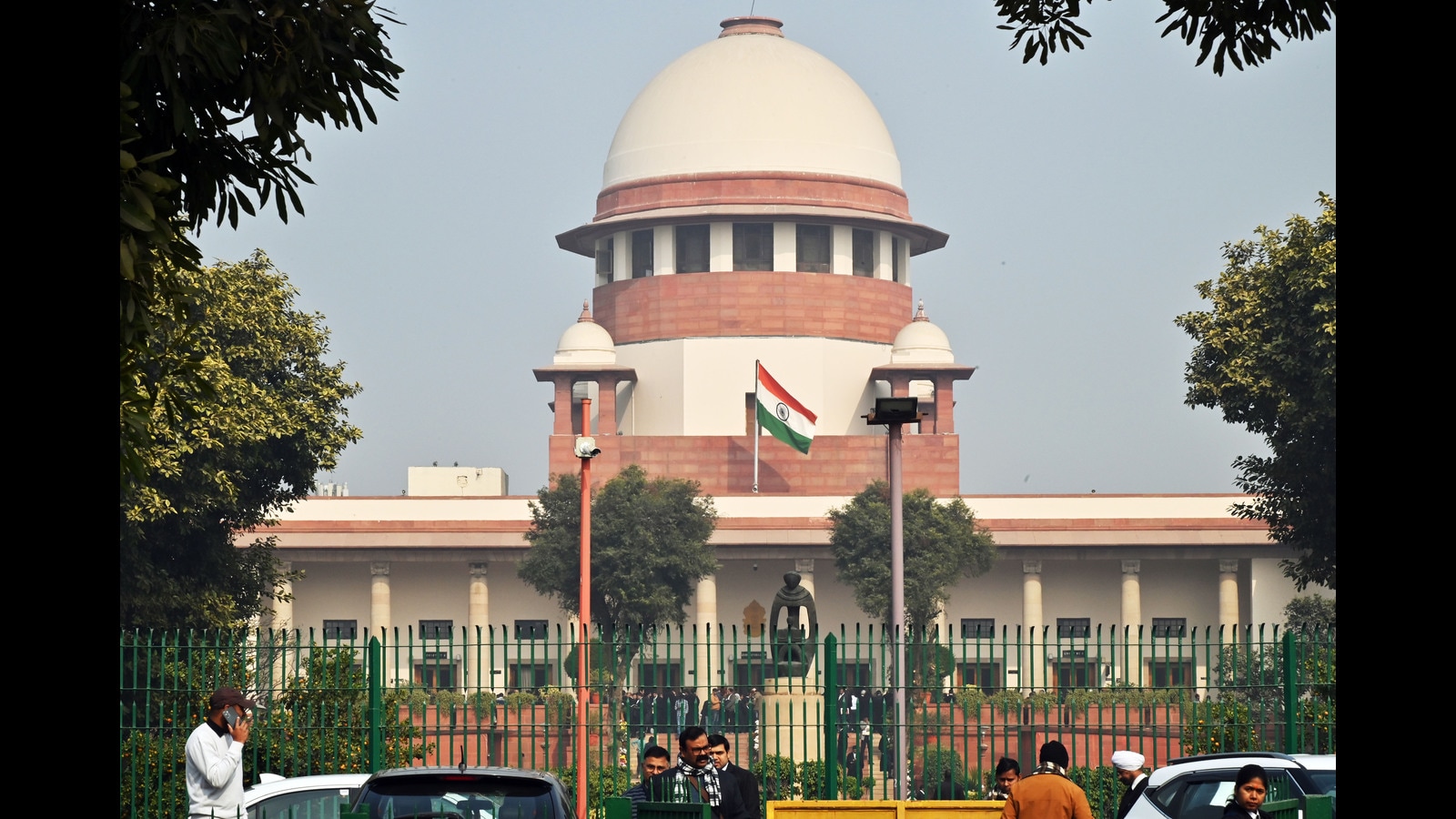The Supreme Court on Thursday began examining whether Rohingya entrants staying in the country are refugees or illegal migrants, as it heard a batch of petitions filed on their behalf challenging their deportation and seeking remedial steps to give them basic amenities during their stay in refugee camps.
 Advocate Kanu Agarwal appearing for Centre submitted a list of cases pertaining to Rohingyas and urged the court to decide this batch of cases first.(File/ANI)
Advocate Kanu Agarwal appearing for Centre submitted a list of cases pertaining to Rohingyas and urged the court to decide this batch of cases first.(File/ANI)
A bench headed by justice Surya Kant said, “The first major issue is whether they are refugees or illegal migrants. The rest is consequential.”
“If they are refugees, they are entitled to certain protections under law. If not, they are illegal migrants and should be deported back to their country,” said the bench, also comprising justices Dipankar Datta and N Kotiswar Singh.
The court took up a batch of 22 cases involving the deportation of foreigners who are either in detention camps or are claiming refugee status. The bench directed that the cases related to Rohingya migrants be segregated into a single batch. It directed that cases concerning other foreigners be clubbed into a separate batch to be taken up separately.
The four questions the court framed in the Rohingya batch of cases included, “whether Rohingya entrants are entitled to be declared as refugees and if so, what protection emanates from the rights they are entitled to; whether Rohingyas are illegal entrants and if government of India and states are obligated to deport them in accordance with law.”
There were two consequential issues also that were framed by the court: “Even if Rohingya entrants are held to be illegal entrants, can they be detained indefinitely or they are entitled to be released on bail subject to conditions.” Lastly, it said, “Whether Rohingya entrants who are not detained but living in refugee camps have been provided with basic amenities like drinking water, sanitation, education, etc.”
As the batch of cases got listed together, the bench expressed a practical difficulty in proceeding with the hearing of the matter as some petitions talked of deportation of foreigners in general, while others specifically related to the condition of foreigners in detention camps.
Advocate Kanu Agarwal appearing for Centre submitted a list of cases pertaining to Rohingyas and urged the court to decide this batch of cases first. The non-Rohingya matters, he added, seek interpretation of the Foreigners Act. The bench said, “The issues that arise in the other batch of cases will be determined separately on another date.”
Advocate Prashant Bhushan appearing in multiple petitions said that the genesis of these cases began with cases filed by Rohingyas in 2013. He said 15 out of the batch of 22 cases pertained to Rohingya refugees and the need for providing them facilities in their camps at par with refugees recognised under the UN Convention on Refugees. India is not a signatory to this convention and has not considered grant of refugee status for them.
Senior advocates Ashwani Kumar and Colin Gonsalves, appearing in other matters, pointed out that Rohingyas who hail from Myanmar have fled to India seeking asylum as they are being persecuted in their country. Gonsalves further referred to a case filed by the wife of a foreigner facing detention in Assam which concern Rohingya and non-Rohingya foreigners. In that case, Gonsalves showed orders passed by the court to expedite the deportation process despite the fact that Myanmar is unwilling to take these persons back.
In May this year, while hearing an application filed by Delhi-based Rohingya migrants, the top court had refused to adopt a piecemeal approach in deciding individual cases and called for all cases pending on the issue to be listed together.
The Centre has been opposing the maintainability of these petitions citing an order of the top court of April 2021 passed in a petition seeking protection for Rohingya refugees. This order permits the Centre to take deportation measures as required under law. This order held that while the right to life and liberty is available to even non-citizens, the right not to be deported is ancillary but concomitant to the right to reside or settle in any part of India, which is guaranteed under Article 19(1)(e) only to citizens.
